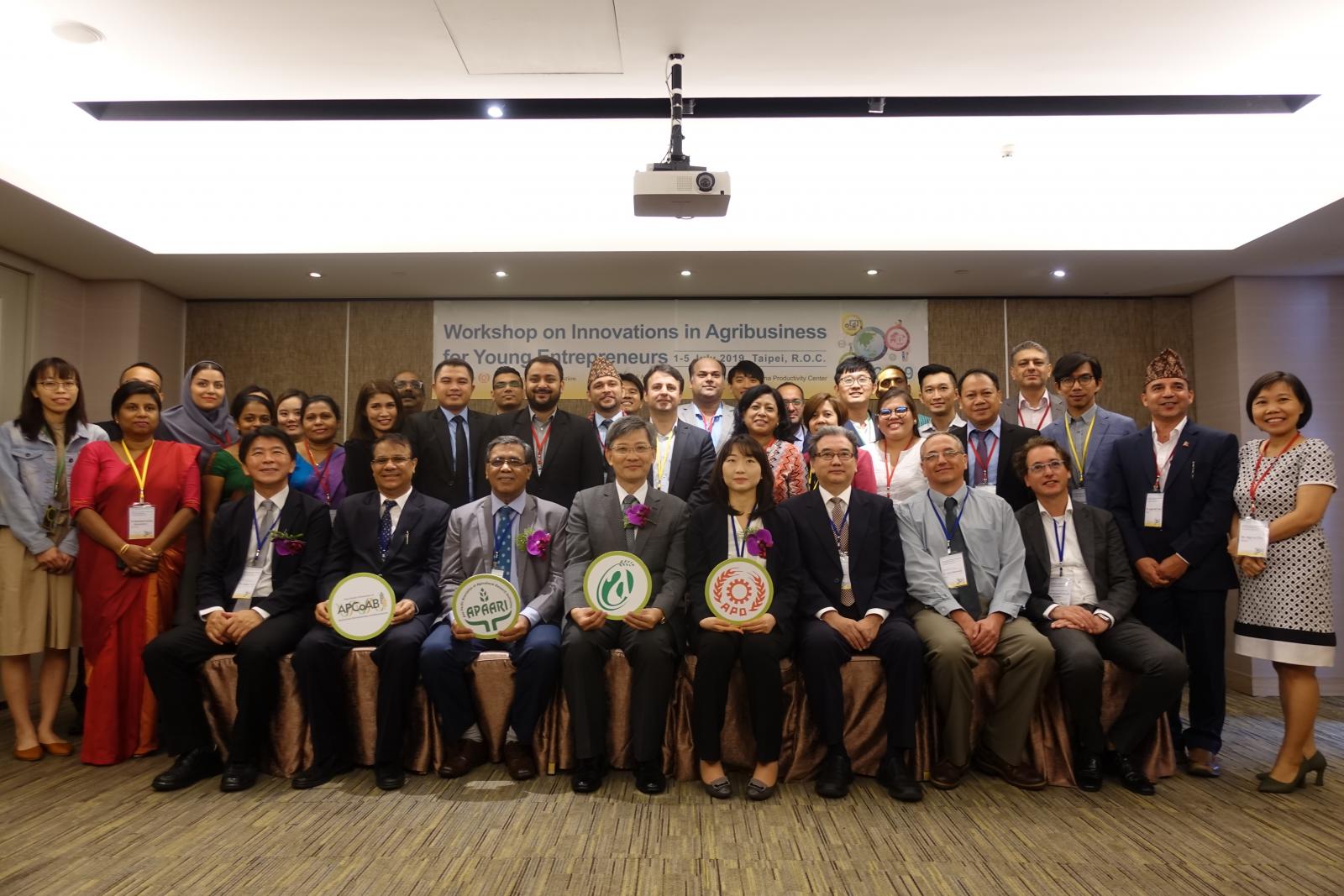The Council of Agriculture and the Asian Productivity Organization hold the “Workshop on Innovations in Agribusiness for Young Entrepreneurs,” in Taiwan, bringing together representatives from the Asia-Pacific region to explore development opportunities for young agribusiness entrepreneurs
The Council of Agriculture (COA) and the Asian Productivity Organization (APO) are jointly organizing the “Workshop on Innovations in Agribusiness for Young Entrepreneurs” in Taiwan from the1st through 5th of July. In attendance are representatives from twelve countries, including Fiji, India, Indonesia, Iran, Nepal, Malaysia, Pakistan, the Philippines, Sri Lanka, Thailand, Vietnam, and Taiwan. Among them are students from seven member states that were recommended by the Asia-Pacific Association of Agricultural Research Institutes (APAARI). Altogether 30 government officials and experts from the Asia-Pacific region are participating. They are engaging in in-depth discussions and exchange of experiences with regard to innovation in agribusiness management, as well as on how to combine digital technology and advanced agricultural technology to raise the value and revenues of agribusinesses.
The COA states that the APO greatly approves of COA measures like promoting the training of young farmers, introducing innovative management of agribusinesses, and upgrading to “smart” agriculture. It is hoped that through this jointly organized innovation workshop, international networks can be built to examine the shared challenges and experiences and that the lessons drawn can be used to assist young agribusiness entrepreneurs in all Asia-Pacific countries to improve production, marketing, and management models, thus raising efficiency and revenues.

The main themes being explored at this workshop include: the challenges faced and advantages possessed by young entrepreneurs in founding and developing new businesses; the construction of digital services platforms to assist agricultural and rural development; and methods and systems for training and cultivating young agribusiness entrepreneurs. In addition to arranging for the sharing of relevant experiences by participating countries, the organizers have also invited foreign lecturers to introduce case studies of entrepreneurship promotion in Japan, Australia, and the UK. Also, Taiwan is sharing measures it has taken to create commercial opportunities for new-style agricultural food products as well as government guidance measures. After the workshop participants will visit the Fu Hsiang Cactus Garden and the Sad Mang Farm to get a practical understanding of the operating models, innovative technology, and marketing strategies adopted by agribusinesses being run by young farmer-entrepreneurs in Taiwan.
